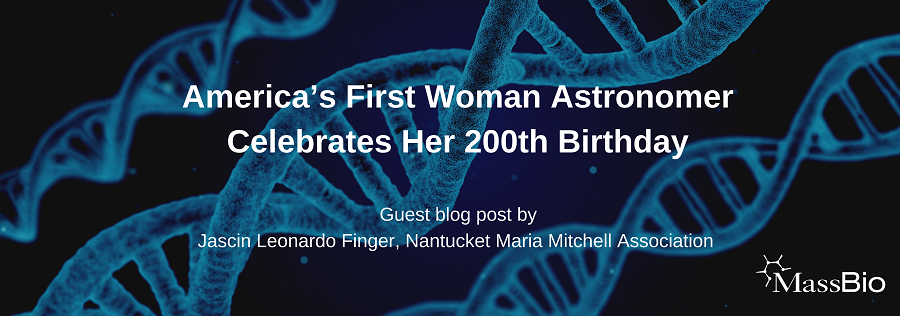
On October 1, 1847, she discovered a telescopic comet in the skies over Nantucket. For her discovery, she was awarded a gold medal by the King of Denmark – the first woman and first American to receive the honor.
In 1848, she was the first woman to be inducted into the American Academy of Arts and Sciences.
In 1849, she was hired by the U. S. Nautical Almanac to serve as a computer – calculating the ephemeris of Venus – making her one of the first women to be hired by the U. S. federal government.
In 1865, she was the first woman to be hired as a professor of astronomy in the U. S. She was the first professor – female or male – to be hired by Vassar College.
In 1869 and again in 1878, she led total solar eclipse viewing trips with her students out West. The only all-female observing groups to make the trek to study the eclipses.
She helped found the Association for the Advancement of Woman and SOROSIS.
She did all of this without a formal education past the age of sixteen. She accomplished this in the mid-nineteenth century.
What would she, Maria Mitchell, America’s first woman astronomer, think of the place of women and girls in STEM today? Raised in a Quaker home and a heavily influenced Quaker community that believed in equality, Maria Mitchell was reared, “where women ruled” (her own words) ̶ where women owned and ran shops, hired other women to work for them, ran shops from their own homes, and led in positions of authority and power within the town. Nantucket women had the mariner’s power of attorney allowing them to make decisions that women elsewhere in America could not do at the time. Nantucket women witnessed Quaker women standing and speaking to a full meetinghouse and making financial and other decisions for Quaker meeting in the same capacity as the men. And on Nantucket, where whaling ruled the economy, women greatly outnumbered men since at least half of the men were away at sea. Mitchell knew no other life until she left the island. She was appalled at what confronted her. She made it her life’s work to support, encourage, keep, and make a difference for the right of women to have educations and for women to work in the sciences.
Maria would still be shocked. She would be grateful and impressed with the strides that have been made but likely stunned to see that there is still so much more to overcome. Today, girls still struggle to find their place in the STEM fields. Encouragement and support systems are not always there and studies show that there continues to be a high loss of girls in the STEM fields starting in middle school. Research has shown things may be improving for women in STEM but the percentage of women in STEM, particularly in certain fields, remains low.
To celebrate Maria Mitchell’s 200th Birthday in 2018, the Nantucket Maria Mitchell Association (mariamitchell.org) founded in 1902 to preserved her legacy and birthplace, will host a women in STEM symposium – the Maria Mitchell Women in Science Symposium (www.mmwiss.org) October 5-6, 2018 at the Babson Executive Conference Center in Wellesley, MA.
Maria Mitchell told her Vassar students, “We are women studying together.” She believed in learning by doing and that everyone worked together. In that spirit, the Maria Mitchell Women in Science Symposium is designed to serve as a source of inspiration and support and to be a hands-on experience in which all attendees are actively participating and problem-solving. We hope to begin to develop real-world solutions for retention and to curb the “leaky pipeline” so that we can take those solutions back to our workplaces and implement them.
Help us celebrate women and girls in STEM during this 200th anniversary of Maria Mitchell’s birth. Let’s make a difference together! Join us. Please visit our website at www.mmwiss.org to learn more and to register for this important meeting.
For women, there are undoubtedly great difficulties in the path, but so much the more to overcome. First, no woman should say, ‘I am but a woman.’ But a woman! What more can you ask to be. Born a woman, born with the average brain of humanity, born with more than the average heart, if you are mortal what higher destiny could you have. No matter where you are nor what you are, you are a power. Your influence is incalculable . . .
– Maria Mitchell